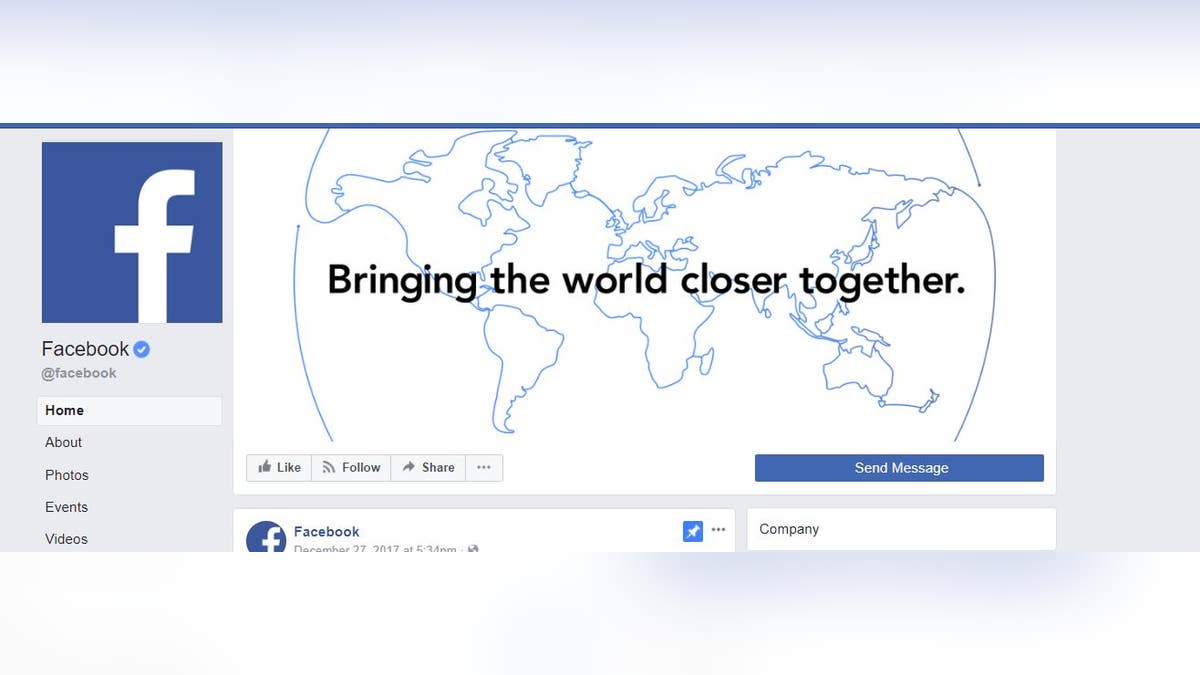
(Credit: Facebook)
As Facebook acknowledges it plays a bigger role in society than ever, the company has attempted to try to right some of the wrongs it created, including letting its user base rank the credibility and trustworthiness of news organizations.
However, the Mark Zuckerberg-led tech giant admits it isn't sure whether social media was good for democracy.
In a number of blog posts on Monday, executives at the Menlo Park, Calif.-based firm assessed the company's impact, with Product Manager Samidh Chakrabarti saying he isn't sure if Facebook is helping or hurting.
FACEBOOK TO LET USERS RANK NEWS CREDIBILITY, PRIORITIZE WHAT'S 'HIGH QUALITY'
"If there’s one fundamental truth about social media’s impact on democracy it’s that it amplifies human intent — both good and bad," Chakrabarti wrote in one of the posts. "At its best, it allows us to express ourselves and take action. At its worst, it allows people to spread misinformation and corrode democracy.
I wish I could guarantee that the positives are destined to outweigh the negatives, but I can’t. That’s why we have a moral duty to understand how these technologies are being used and what can be done to make communities like Facebook as representative, civil and trustworthy as possible.
This is a new frontier and we don’t pretend to have all the answers. But I promise you that my team and many more here are dedicated to this pursuit. We’ll share what we learn and collaborate with you to find the answers."
In the lead post, Facebook’s Global Politics and Government Outreach Director Katie Harbath mentioned social events such as the Arab Spring and the recent meddling by Russian government agents in the 2016 U.S. presidential election as recent happenings where Facebook played a part.
FACEBOO, COCAINE, OPIOIDS: HOW ADDICITIVE IS THE SOCIAL NETWORK?
Facebook's attempts to fix itself
Facebook has attempted to try and address these issues since Zuckerberg said it was a "pretty crazy idea" (which he later apologized for) that the company played a role in affecting the outcome of the election, to mixed success.
In addition to the aforementioned changes being made as to how news organizations are ranked, it's also worked to combat the rise of fake news, work with domestic and foreign governments to prevent interference and adhere to lawful government requests for documents.
The company also announced a major reorganization to its News Feed, with Zuckerberg saying the News Feed would be redesigned to "encourage meaningful social interactions with family and friends over passive consumption." As a result, Facebook's 2 billion plus users will see less content from brands (down from roughly 5 percent to roughly 4 percent) and more content from their Facebook friends.
Earlier this month, Zuckerberg stated that his major goal for 2018 was fixing Facebook, a message he was widely criticized for, due to his stature as CEO and co-founder of the company.
Follow Chris Ciaccia on Twitter @Chris_Ciaccia








































